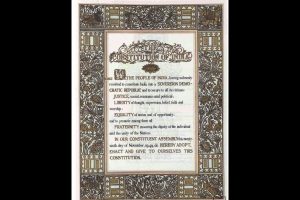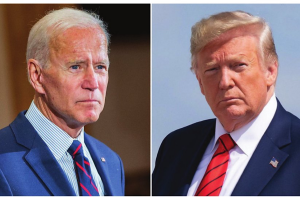In parallel with the attempted mending of fences with North Korea and Russia, Donald Trump’s belligerent tweet against Iran and its nuclear programme is bound to make the waters murkier. The country, the US President has warned, will have to “pay a price few countries have ever paid before”.
We do not know whether he has alluded to Iraq under the presidency of George Bush. Yet we do know that the threat has been readily endorsed by the US National Security Adviser, John Bolton, who has buttressed the President’s bluster with his supplementary ~ it is not a random act or empty bluster but part of a considered move by the US administration to ratchet up the economic, political and psychological pressure on Iran.
Almost predictably, President Rouhani has binned the threats from the White House as psychological warfare, an attempt by Mr Trump to play to the electoral gallery ahead of the midterm elections, in itself a crucial event in the political calendar. The hostile rhetoric between Washington and Tehran escalated after the Iranian President told the US that it shouldn’t “play with the lion’s tail”.
The time for beating the war-drum is not yet; but was the excessive underlining really necessary? Late on Sunday, Trump posted a tweet in capital letters warning Rouhani of “unprecedented consequences”. Suffice it to register that the President of Iran would have got the message just as well, if conveyed in what the printer calls the “upper-lower font”.
The Iranian foreign minister, Mohammad Javad Zarif, responded with a scathing tweet of his own, mimicking Trump’s caps-lock message and warning the US President to “BE CAUTIOUS!” Capital letters have been matched with capitals in what appears to be a new spin on diplomatic messaging.
President Trump may have alienated Europe further still. It is already in sharp disagreement with his decision to pull out of the 2015 nuclear deal. There is no evidence that Iran has violated the deal, but the EU countries are struggling to find credible ways to protect enterprises that are still trading in Iran from the threatened effect of US “secondary sanctions”.
The first sanctions, that relate to banking, are due to come into force in three weeks. In the context of the trilateral equation between the US, Europe, and Iran, Mr Trump appears to be going off at a tangent. The verbal volley and thunder can only dim the chances of reform within Iran, notably the hope of persuading Tehran to change its policy in Syria, Yemen and Iraq.
Almost immediately, the economic impact of Trump’s tweet has been damaging. The Iranian national currency reportedly went into a tailspin. To that can be added the warning by the Emir of Qatar, Tamim bin Hamad Al Thani, that US sanctions could provoke Iran into closing the Strait of Hormuz, thus cutting off European access to Middle East energy supplies. Donald Trump has caused a flutter in the trans-Atlantic roost.











